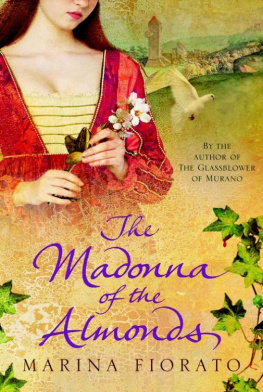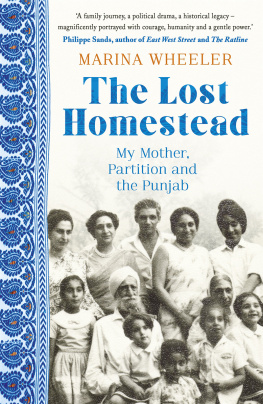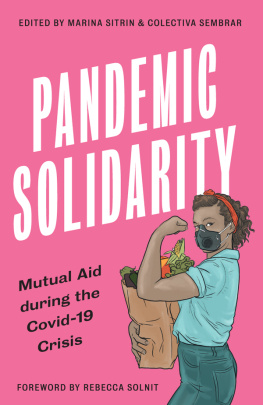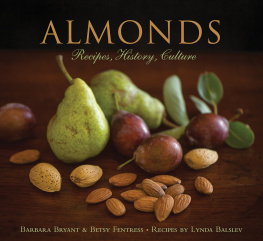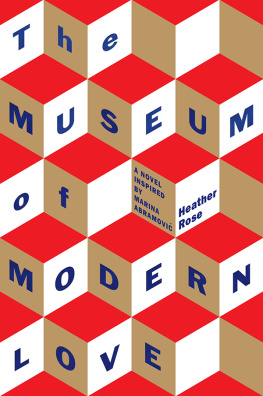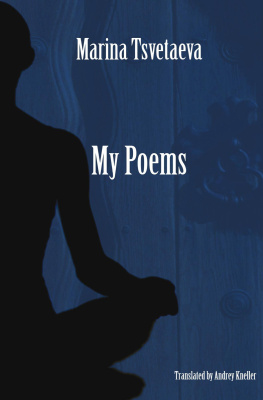Marina Fiorato - The Madonna of the Almonds
Here you can read online Marina Fiorato - The Madonna of the Almonds full text of the book (entire story) in english for free. Download pdf and epub, get meaning, cover and reviews about this ebook. year: 2010, publisher: Beautiful Books, genre: Art. Description of the work, (preface) as well as reviews are available. Best literature library LitArk.com created for fans of good reading and offers a wide selection of genres:
Romance novel
Science fiction
Adventure
Detective
Science
History
Home and family
Prose
Art
Politics
Computer
Non-fiction
Religion
Business
Children
Humor
Choose a favorite category and find really read worthwhile books. Enjoy immersion in the world of imagination, feel the emotions of the characters or learn something new for yourself, make an fascinating discovery.
- Book:The Madonna of the Almonds
- Author:
- Publisher:Beautiful Books
- Genre:
- Year:2010
- Rating:5 / 5
- Favourites:Add to favourites
- Your mark:
- 100
- 1
- 2
- 3
- 4
- 5
The Madonna of the Almonds: summary, description and annotation
We offer to read an annotation, description, summary or preface (depends on what the author of the book "The Madonna of the Almonds" wrote himself). If you haven't found the necessary information about the book — write in the comments, we will try to find it.
The Madonna of the Almonds — read online for free the complete book (whole text) full work
Below is the text of the book, divided by pages. System saving the place of the last page read, allows you to conveniently read the book "The Madonna of the Almonds" online for free, without having to search again every time where you left off. Put a bookmark, and you can go to the page where you finished reading at any time.
Font size:
Interval:
Bookmark:
To my father Adelin Fiorato - a true Renaissance man.
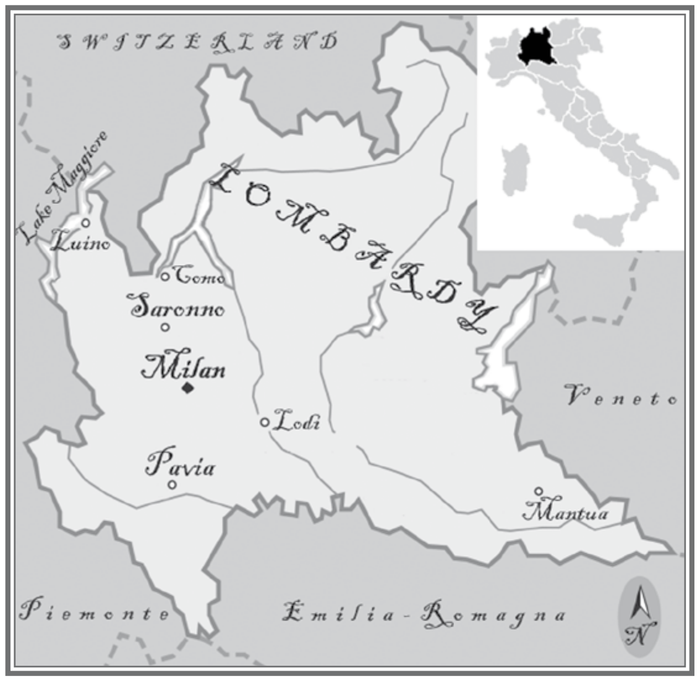
Tis no use telling you my name, for I am about to die.
Let me tell you hers instead Simonetta di Saronno. To me it always sounded like a wondrous strain of music, or a line of poetry. It has a pleasing cadence, and the feet of the words as they march have a perfection almost equal to her countenance.
I should probably tell you the date of my death. It is the twenty-fourth day of February, in the year of Our Lord 1525, and I am lying on my back in a field outside Pavia in Lombardy.
I can no longer turn my head, but can move only my eyes. The snow falls on my hot orbs and melts at once I blink the water away like tears. Through the falling flakes and steaming soldiers I see Gregorio most excellent squire! still fighting. He turns to me and I see fear in his eyes I must be a sorry sight. His mouth forms my name but I hear naught. As the battle rages around me I can hear only the blood thrumming in my ears. I cannot even hear the boom of the evil new weapons giving tongue, for the one that took me deafened me with its voice. Gregorios opponent claims his attention there is no time to pity me if he is to save his skin, for all that he has loved me well. He slashes his sword from left to right with more vigour than artistry, and yet he still stands and I, his lord, do not. I wish that he may live to see another dawn perhaps he will tell my lady that I made a good death. He still wears my colours, save that they are bloodied and almost torn from his back. I look closely at the shield of blue and silver three ovals of argent on their azure ground. It pleases me to think that my ancestors meant the ovals for almonds when they entered our arms on the rolls. I want them to be the last things I see. When I have counted the three of them I close my eyes forever.
I can still feel, though. Do not think me dead yet. I move my right hand and feel for my fathers sword. Still it lies where it fell and I grasp the haft in my hand well worn from battle, and accustomed to my grip. How was I to know that this sword would be no more use to me than a feather? Everything has changed. This is the last battle. The old ways are as dead as I am. And yet it is still fitting that a soldier should die with his sword in hand.
Now I am ready. But my mind moves from my own hand to hers her hands are her great beauty, second only to her face. They are long and white, beautiful and strange; for her third and fourth fingers are exactly of a length. They felt cool on my forehead and my memory places them there now. Only a twelvemonth ago they rested there, cooling my brow when I had taken the water fever. She stroked my brow, and kissed it too, her lips cool on my burning flesh; cool as the snow which kisses it now. I open my lips so that I may taste the kiss, and the snow falls in, refreshing my last moments. And then I remember that she had taken a lemon, cut it in twain and squeezed the juice into my mouth, to make me well again. It was bitter but sweetened by the love of her that ministered to me. It tasted of metal, like the steel of my blade when I kissed it just this morning as I led my men to battle. I taste it now. But I know it is not the juice of a lemon. It is blood. My mouth fills with it. Now I am done. Let me say her name one last time.
Simonetta di Saronno.
Simonetta di Saronno sat at her solar window, the high square frame turning her to an angel of the rererdos. The citizens of Saronno oft remarked on it; every day she was there, staring down at the road with eyes of glass.
The Villa Castello, that square and elegant house, sat in solitary majesty a little way from the town as the saying went: una passeggiata lunga, ma una cavalcata corta, a long walk, but a short ride. It was set where the land of the Lombard plain began to climb to the mountains; just enough elevation to give the house a superior aspect over the little town, and for the townsfolk to see the house from the square. With plaster that had the sun-blush of a lobster, white elegant porticos and fine large windows, the house was much admired, and might have been the object of envy; but for the fact that the tall gates were always open to comers. The tradesmen and petitioners that trod the long winding path to the door through the lush gardens and parks could always be sure of a hearing from the servants a sign, all agreed, of a generous lord and lady. In fact the villa symbolised the di Saronnos themselves; near enough to town and their feudal obligations, but far enough away to be apart.
Simonettas casement could be seen from the road to Como, where the dirt track wound to the snow-rimed mountains and looking-glass lakes. The victuallers and merchants, the pedlars and water-carriers all saw the lady at her window, day after day, as they went about their business. Before this time they might have made a jest about it, but there was little to laugh at in these times. Too many of their men had gone to the wars and not returned. Wars that seemed little to do with this their state of Lombardy, but of greater concerns and high men with low motives the pope, the French king, and the greedy emperor. Their own little prosperous saffron town of Saronno, set between the civic glories of Milan and the silver splendour of the mountains, had been bruised and battered by the conflict. Soldiers boots had scraped the soft pavings of the piazza. Steel stirrups had knocked chunks from the warm stones of the houses corners as the cavalry of France and the Empire passed through in a whirlwind of misplaced righteousness. So the good burghers of Saronno knew what Simonetta waited for; and for all that she was a great lady, they pitied her for the human feelings that she shared with all the mothers, wives and daughters of the town. They all noted that, even when the day came that she had dreaded, she still sat at the window, day and night, hoping that he would come home.
Villa Castellos widow, for such she now was, was much talked of in the town square. The old, gold stones of Saronno, with its star of streets radiating out from the piazza of the Sanctuary church, heard all that its citizens had to say. They talked of the day when Gregorio di Puglia, Lord Lorenzos squire, had staggered, bloody and beaten, up the road to the villa. The almond trees which lined the path swayed as he passed, their silver leaves whispering that they knew of the heavy news that he carried.
The lady had left her window at last, just once, and appeared again at the doorway on the loggia. Her eyes strained, willing the figure to be the lord and not the squire. When she perceived the gait and build of Gregorio, the tears began to slide from her eyes, and when he came closer and she saw the sword that he carried, she sank lifeless to the ground. All had been seen by Luca son of Luca, the under-gardener at the villa, and the boy had enjoyed a couple of days of celebrity in the town as the sole witness of the scene. He spoke, as if a wandering preacher, to a little knot of townsfolk that gathered under the shadow of the church campanile to shelter from the fierce sun and hear the gossip. The crowd shifted with the shadow, and it was fully an hour before the interest and speculation had ceased. They talked for so long of Simonetta that even the churchs priest, a kindly soul, felt moved to open the doors and shake his head at Luca from the cool dark. The under-gardener hurried to the end of his tale as the doors closed again for he did not wish to leave out the most fascinating and mysterious aspect of the tragedy: the squire had brought something else with him from the battlefield too. Long and metal; no, not a swordLuca did not know exactly what it was. He did know that lady and squire had spent a couple of hours in close and grave counsel together once she had recovered her conscious state; then the lady had appeared once again in the window, there to stay, it seemed, until Judgement Day. A day, all prayed, which would unite her again with her lord.
Font size:
Interval:
Bookmark:
Similar books «The Madonna of the Almonds»
Look at similar books to The Madonna of the Almonds. We have selected literature similar in name and meaning in the hope of providing readers with more options to find new, interesting, not yet read works.
Discussion, reviews of the book The Madonna of the Almonds and just readers' own opinions. Leave your comments, write what you think about the work, its meaning or the main characters. Specify what exactly you liked and what you didn't like, and why you think so.

